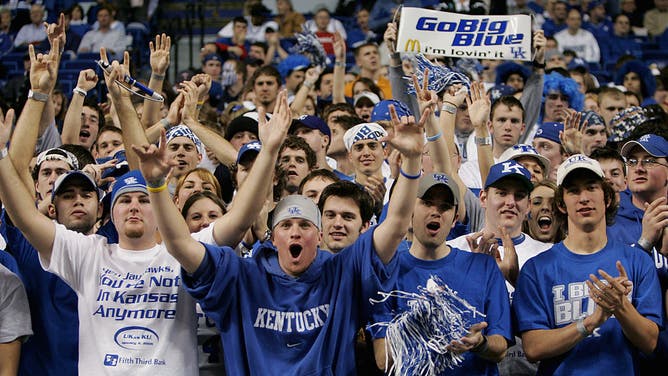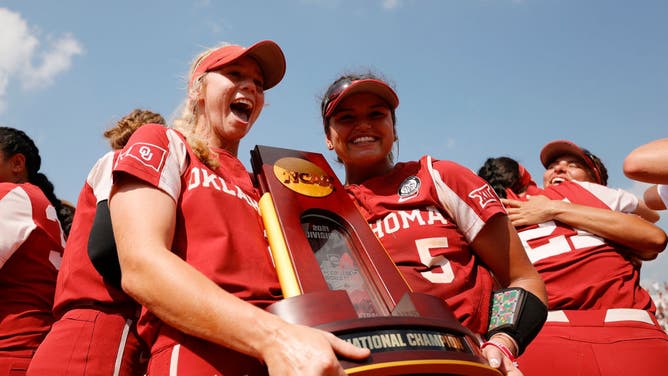The End Of Amateurism: More States Enact NIL Laws To Undercut NCAA
If you’re a fan of golf, history, or sports journalism, I would recommend reading The Grand Slam: Bobby Jones, America, and the Story of Golf by Mark Frost. It unearths so many crucial nuggets about the origins of America’s modern sports culture, but the thread that weaves the saga together is the notion of amateurism and what amateurism meant for athletes a century ago.
Last week, Kentucky governor Andy Beshear signed executive legislation allowing NCAA amateur athletes to begin profiting off of their name, image, and likeness. The order, which goes into effect in July, adds Kentucky to a growing list of states that have enacted similar policies aimed at undercutting dated NCAA rules that prohibit amateurs from receiving sponsorships, personal appearance fees, or tips of any kind.

(Photo by Andy Lyons/Getty Images)
We live in a technologically-fueled world in which snap judgments and sweeping generalizations dominate public discourse. Most Twitter warriors use history as a prism through which they can illuminate ugliness and advocate for their version of utopia; but history is best understood as a psychological study through which we may understand what humans once valued, why they valued it, and what those values tell us about human nature. As we close the book on a very distinct portion of sports and economic history, I think it’s important to understand where we came from, lest we get swept up in the impending frenzy of local car ads, NFTs, and licensed autograph signings.
And that’s going to be the bulk of revenue opportunities for most athletes: sort of lackluster, corny small business ventures. These new policies feel like a floodgate opening up, and for the extremely famous one percent of NCAA athletes, that may be the case. But once the dust settles, most college amateurs-turned-professionals will still basically be playing for free. And if they study the history of sport, they’ll realize that’s okay.

(Photo by Sarah Stier/Getty Images)
Amateurism in Jones’s era meant choosing a “proper” career whilst excelling at a sport for the love of the game. Work and play were seen as two vital, yet distinct aspects of a balanced life, and as such, becoming a professional sportsman was seen as a cheap ploy to hustle a few bucks here and there. Sure, the snobbery towards professionals was a relic of Great Britain’s brutal class system, but the reverence shown toward amateurs was actually a celebration of purity and dedication. Quite possibly the greatest golfer of all time (go read the book before you blurt out the words Jack or Tiger), Bob Jones mentally and physically abused himself to become elite and perform for his many fans, and he never collected a penny in winnings for his efforts. The game of golf, of course, paired with his many relationships and his unshakeable aura of grace under fire, handsomely rewarded him later in life, and Jones died a very wealthy man.
American society has changed demonstrably since the days of true amateurism, for better or for worse. What remains, though, is that talented people with a true passion for their craft keep finding ways to be successful, regardless of circumstance. To all future NCAA athletes who make a fortune selling themselves as amateurs, you can thank the original PGA castaways who fought for legitimization of professional athletics in the 1920s. To all the athletes who will use amateurism as a means of gaining a college education, just know that your passion will pay off in the form of relationships, experiences, and opened doors. And no matter your personal stance on the NCAA, it's important to realize just how much can change, socially and economically, in the span of a century. For that reason, we should resist the temptation to make bombastic snap judgments about the world without proper historical context. After all, what is considered obvious, or the “right side of history” now, will likely be scoffed at a hundred years from now.